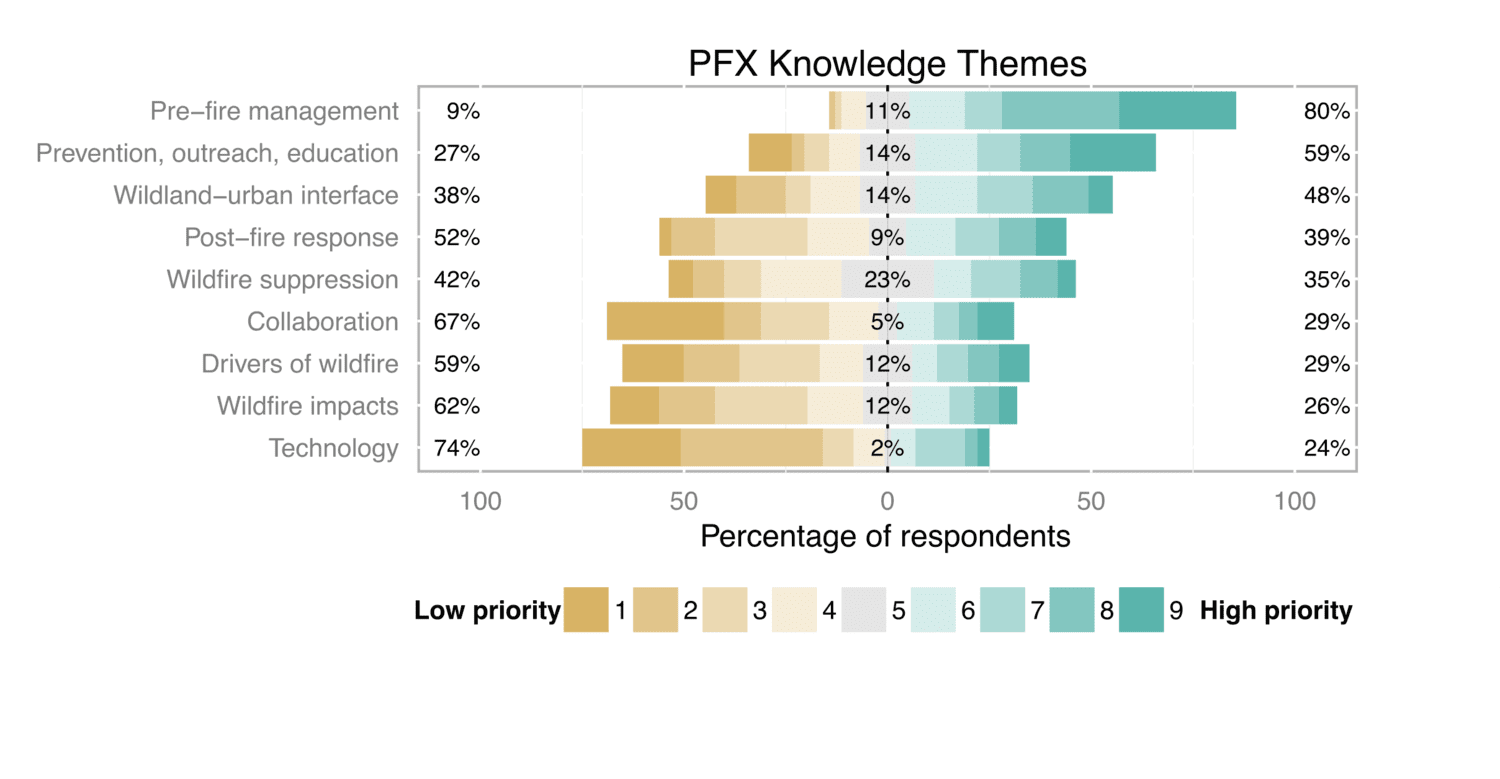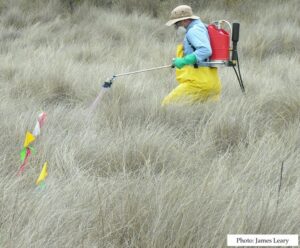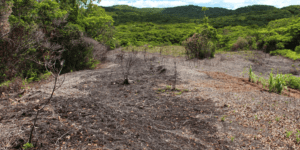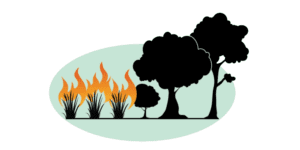Prioritizing Stakeholder Needs
We passionately believe that working with and understanding the communities, land owners, fire fighters, natural and cultural resources stewards and those affected by fire is our highest priority in identifying the gaps in fire science.
In 2014, key knowledge and technology needs for Pacific Islands fire practitioners emerged which aligned with Joint Fire Science Program goals and the National Cohesive Strategy for Wildland Fire Management.

Current Wildfire Stakeholder Priorities
PFX continues its work on priorities such as pre- and after fire management and response, prevention and education, and understanding drivers of wildfire. We also constantly adjust, refine and offer new fire science products based on our deep engagement and commitment to those affected by wildfire. We are proud to say that we are in constant contact with our end-users through the co-development, review and delivery of wildfire science.
Growing Our Wildfire Community
PFX continuously aims to grow the diversity and breadth of membership of those seeking knowledge about fire in the Pacific.
Seeking New Ways to Connect With You
PFX is committed to timely and responsive wildfire science delivery that attracts new members not only through our fact sheets and webinars, but also through oral histories (Partner Perspectives), remote/hybrid meetings and workshops, social media and new forms of communication.
Do You Have a Great Idea You'd Like to Pursue?
Recent Resources for Practitioners
What: Observations and experiments on tropical grasses, including information on different grass species and on herbicide timing, application method, and ingredients. James Leary presents on over a decade of observations…
This 2-page fact sheet explains the problem of wildfire on tropical islands as it intersects with watershed and marine resource health, invasive species, climate and weather. Tags: Hawaii, Climate &…
Understanding the Grass-Fire Cycle can help to better manage grasslands and savannas, reduce the risk of wildland fire, and limit the impacts of re on our communities, watersheds, and native…



